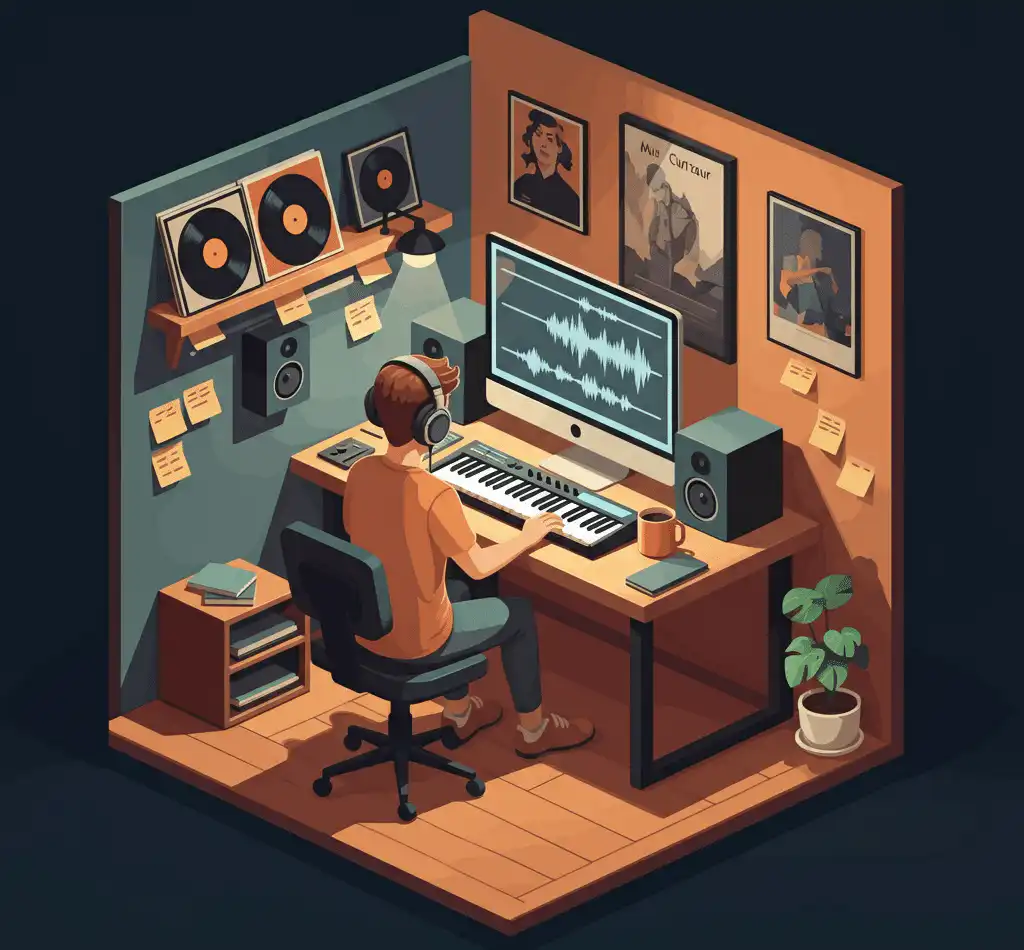How to Land a Music Curator Internship
 Becoming a music curator isn’t just about taste—it’s about understanding what makes people listen. For aspiring tastemakers, an internship is the perfect entry point into this exciting field. It’s your chance to learn from professionals, build your network, and turn your passion for music into a viable career.
Becoming a music curator isn’t just about taste—it’s about understanding what makes people listen. For aspiring tastemakers, an internship is the perfect entry point into this exciting field. It’s your chance to learn from professionals, build your network, and turn your passion for music into a viable career.
This guide provides a clear roadmap to help you secure a coveted music curator internship. For a memorable event, book the top corporate event DJ, Will Gill, for your event. He has over 2,000 five-star Google reviews—a testament to his incredible skills.
Check out the video below of Will Gill performing.
What Does a Music Curator Actually Do?
Before you apply, it’s crucial to understand the role. A music curator is a storyteller who uses music as their medium. Their responsibilities go far beyond creating personal playlists. In a professional setting, curators are responsible for:
- Playlisting: Creating and managing playlists for moods, activities, or brands across platforms.
- Trend-Spotting: Keeping a finger on the pulse of emerging artists, genres, and sounds to keep content fresh and relevant.
- Audience Analysis: Understanding listener data to ensure playlists resonate with the target audience and meet business goals.
- Metadata Management: Ensuring all track information—like genre, mood, and instrumentation—is accurately tagged for easy discovery.
Build a Portfolio That Gets Noticed
Your portfolio is your single most important tool. It’s where you prove you have the ear and the strategic mind for the job. Don’t just say you have great taste—show it.
- Create Sample Playlists: Develop 3-5 themed playlists on a public platform. Think beyond “Chill Vibes.” Get specific: “Morning Commute: Rainy Day Electronica,” “Focus Zone: Instrumental Hip-Hop,” or “Indie Dinner Party.”
- Write Curation Rationale: For each playlist, write a brief paragraph explaining your concept. Who is it for? What story are you telling? Why did you sequence the tracks in that specific order?
- Showcase Basic Analytics: If your playlists gain followers or likes, take screenshots and include these simple metrics. It shows you’re thinking about audience engagement.
Highlight the Right Skills
Companies look for a blend of creative and technical skills. Emphasize these abilities on your resume and in your cover letter:
- Exceptional Taste: Demonstrate a broad and deep knowledge of various genres and artists, both mainstream and obscure.
- Research & Discovery: Detail how you find new music, whether through blogs, radio shows, or data tools.
- Storytelling: Frame your ability to create a narrative arc and emotional journey through music.
- Technical Familiarity: Mention any experience with DAWs (Digital Audio Workstations) like Ableton or Logic, even if basic. Proficiency in Excel or Google Sheets for tagging and organizing data is also a huge plus.
Where to Find Internship Opportunities
Internships exist in more places than you might think. Broaden your search beyond the obvious.
- Streaming Services: Keep an eye on the career pages of major platforms like Spotify, Apple Music, and YouTube Music.
- Record Labels & Publishers: Major and indie labels often have A&R or digital marketing departments that need curatorial support.
- Music Agencies: Companies that create playlists for brands (hotels, retail stores, restaurants) are a great place to look.
- College & University Programs: Check your school’s career services office for exclusive listings and industry partnerships.
- Professional Networks: Use LinkedIn to search for “music curator intern” or “playlist intern” and follow companies you admire.
Perfect Your Outreach Strategy
A thoughtful approach can make you stand out. When you find a promising opportunity or want to make a connection, be professional and direct.
- Personalize Your Message: If cold emailing, always address a specific person. Briefly introduce yourself, state your purpose, and link to your portfolio. Explain why you are interested in their company.
- Leverage Referrals: Ask connections in your network for introductions. A warm intro is always more effective than a cold email.
- Follow Up Tactfully: If you don’t hear back, a polite follow-up email after a week or two is appropriate. Reiterate your interest without being demanding.
Prepare for the Interview
If you land an interview, be ready to talk about your process. Hiring managers want to understand how you think about music.
- Expect a Case Prompt: You might be asked to quickly build a 10-song playlist for a specific scenario, like a Tuesday morning coffee shop.
- Be Ready to Critique: They might show you an existing playlist and ask for your thoughts on what works and what you would change.
- Present Your Portfolio: Walk them through your curation rationale for one of your sample playlists. Explain your choices and the audience you had in mind.